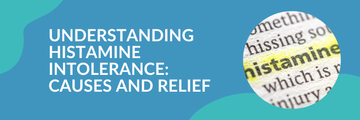By Dr Joseph Nightingale, MBBS, MSc – Advisory Board, Sensitivity Check
Meet Dr Nightingale: https://www.sensitivitycheck.com/pages/authors/joseph-nightingale
Feeling constantly tired isn’t normal. Too often, we rely on a caffeine hit, whether it’s energy drinks or a post-4pm cup of coffee, to perk us up and get us through until bedtime. We blame a lack of sleep or a busy schedule. But that’s not the root cause of the problem.
Understanding why we feel tired can help us solve the problem. Instead of using chemical fixes (that only end up ruining our sleep). There are several effective natural ways to increase your energy.
But what causes low energy? Why are you always feeling tired? And what evidence-backed tips can fix whatever is holding you back? Let’s find out.
Why Am I Always Tired?
We often assume fatigue is just part of modern life. But persistent tiredness isn’t something you should simply accept. If you’re feeling drained every day, it’s usually a sign that something’s off, whether that’s your sleep, your diet, your lifestyle, or something more subtle.
Some of the most common culprits behind low energy include:
- Irregular or poor-quality sleep
- Blood sugar crashes
- Nutrient deficiencies (like iron or B12)
- Stress and mental load
- Hidden food sensitivities
The good news? You can start making small changes today that add up to real improvements. Here’s how.
How to Boost Energy Naturally
1. Prioritise Consistent Sleep
We all know sleep matters. But it’s not just about how long you’re sleeping, it’s also about when and how deeply. Your body’s circadian rhythm (internal clock) depends on consistency. Shifting your bedtime around each night disrupts your ability to get restorative rest.
To optimise sleep:
- Stick to a regular sleep-wake schedule, even on weekends
- Avoid screens for at least an hour before bed
- Keep your bedroom cool, dark, and quiet
- Avoid caffeine after 2pm
One night of bad sleep can tank your energy. But improving sleep hygiene is one of the fastest ways to boost energy levels naturally.
2. Stabilise Your Blood Sugar
Energy crashes after meals? That’s often down to your blood sugar.
When we consume refined carbs or meals high in sugar, our blood sugar levels spike and then rapidly drop. This “rollercoaster” leaves you feeling foggy, shaky, and craving more sugar.
Here’s how to fix it:
- Eat protein and healthy fats with every meal
- Swap white carbs for wholegrains and fibre-rich foods
- Avoid skipping meals or going long stretches without food
Balanced blood sugar = balanced energy. No crashes. No cravings.
3. Move Daily, But Smartly
Exercise might be the last thing you want to do when you’re tired, but it’s one of the best ways to beat fatigue. Movement increases circulation, boosts feel-good hormones, and helps regulate your sleep-wake cycle.
That said, more isn’t always better. Overtraining or high-intensity workouts can actually drain your energy.
Aim for a mix of:
- Daily walks in natural light
- Strength training 2–3 times per week
- Gentle yoga or stretching for recovery
Even 20 minutes of movement per day can significantly improve your energy over time.
4. Replenish Key Nutrients
Fatigue is one of the first signs of a nutrient deficiency. The most common culprits?
- Iron
- Vitamin B12
- Magnesium
- Vitamin D
These nutrients are essential for energy production, nerve health, and oxygen transport. Low levels often go undetected, especially in women, vegetarians, or people with digestive issues.
If you’re always tired despite getting good sleep and eating a decent diet, it’s worth checking your nutrient levels. A supplement can help, but testing first is the smarter move.
5. Manage Stress and Mental Load
Mental fatigue is just as real as physical tiredness. When your brain’s running all day, juggling responsibilities, to-do lists, and emotional pressure, it uses up a surprising amount of energy.
Stress increases cortisol, which can disrupt your hormones, appetite, and sleep patterns. Over time, this constant fight-or-flight mode leaves you depleted.
To manage stress naturally:
- Take 10-minute mindfulness breaks throughout your day
- Try journaling or breathwork to clear your mind
- Get outside. Even a short walk in nature helps
- Create digital boundaries (switch off after 8pm)
Reducing your mental load isn’t just good for your mood. It’s one of the most underrated ways to naturally boost energy.
When to Look for Other Causes?
Tried everything and still feel tired all the time? There might be an underlying cause that’s harder to spot, like food sensitivities, hormonal imbalances, or low-grade inflammation.
That’s where a comprehensive sensitivity test can help.
The Optimum Health Test analyses your response to over 1,400 items, from foods and drinks to environmental and chemical triggers. Just send in a hair sample, and you’ll receive a detailed report highlighting potential sensitivities that may be draining your energy.
This can help you make smarter decisions about what to cut out and give your body a break from what’s secretly weighing it down.
You Don’t Have to Accept Low Energy as Your Baseline
By improving sleep, stabilising blood sugar, moving your body, topping up nutrients, and managing stress, you give yourself the best possible shot at feeling energised.
And if the tiredness still lingers? It’s time to dig deeper. The Optimum Health Test can provide the clarity you need to finally regain your energy.







